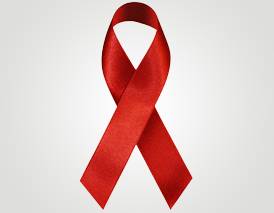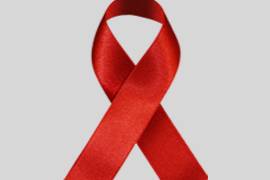
Lambda Legal Applauds Supreme Court Decision in HIV Funding Case
Blog Search
This post was written by Jon W. Davidson, Lambda Legal's Legal Director, and Scott Schoettes, Lambda Legal's HIV Project Director.
Today's decision from the Supreme Court in Agency for International Development v. Alliance for Open Society International is an important and welcome ruling.
By a 6-2 vote (with Justice Kagan recusing herself because of her former role as Solicitor General), the Court struck down a provision of the United States Leadership Against HIV/AIDS, Tuberculosis and Malaria Act of 2003. The provision required international organizations receiving federal funding for HIV treatment and prevention to have a policy explicitly opposing prostitution and sex trafficking. It also prohibited them from using those funds to promote or advocate the legalization of prostitution or sex trafficking.
This policy provision put organizations seeking to fight the spread of HIV abroad to a difficult choice: They either had to forgo the U.S. funds (which would limit their ability to engage in HIV treatment and prevention work) or they had to take an express public position that might be at odds with their views and their work reaching out to and supporting those who—frequently as a means of simply surviving—engage in sex for pay.
The plaintiff organizations explained that they were particularly concerned that issuing such statements would impair their ability to engage with sex workers to combat the transmission of HIV in the course of commercial sex.
Chief Justice Roberts’ opinion for the Court’s majority held that the law’s funding restriction violates the First Amendment because it sought to leverage the government funding to regulate speech outside the contours of the funded program itself.
This is a significant victory for freedom of expression. It means that the government cannot use its purse-strings to demand that those receiving government funds hew to ideological orthodoxy in work that is not funded by the U.S. government.
The decision helps ensure that the government not overreach by limiting who can receive government funds based on whether they agree with the government. By limiting any government-imposed restrictions to the activities of the programs using the federal funding—and allowing the organization to espouse its own views and conduct privately funded programming that is in keeping with those views—the decision strikes the proper balance in terms of the First Amendment.
Given the dominance of federal funding in the fight against HIV, the next debate—and it is a legislative not a judicial one—should be over whether our government ought to be imposing at all this restriction on the use of its funds.
“Just say no” has never been a sensible public policy, as it does nothing to support people who may have limited options, ability or inclination to refrain from activity that puts them at risk of HIV. One thing that has been shown again and again over the course of the HIV epidemic is that understanding better the realities of people’s lives, reaching them “where they live,” and supporting them to make decisions that will reduce the risk of HIV transmission—and thereby help protect themselves and others—is far more likely to be effective than moralizing or criminal punishment. It's not like laws against prostitution have ever put an end to it. Instead, those messages simply serve to alienate those who need to be armed with information and the means of protecting themselves and others.
Educating sex workers about HIV and making sure they are not discouraged from using condoms or opting for safer sexual activities are far more likely to lead to reductions in the spread of HIV than public statements condemning them as criminals.
Today’s decision was an important victory both for free speech and for the global fight against HIV, because it ensures that those the government views as “politically incorrect” will still be eligible to conduct government-funded programs in that fight, as long as they don’t use government funding to promote those particular views. Now we need to move the debate to the next arena and insist that our government elevate promoting health and saving lives over moralizing and judgment by ending altogether this restriction on the use of federal funds.
Learn more about the work Lambda Legal is doing to ensure access to lifesaving preventive measures for sex workers here in the United States.




